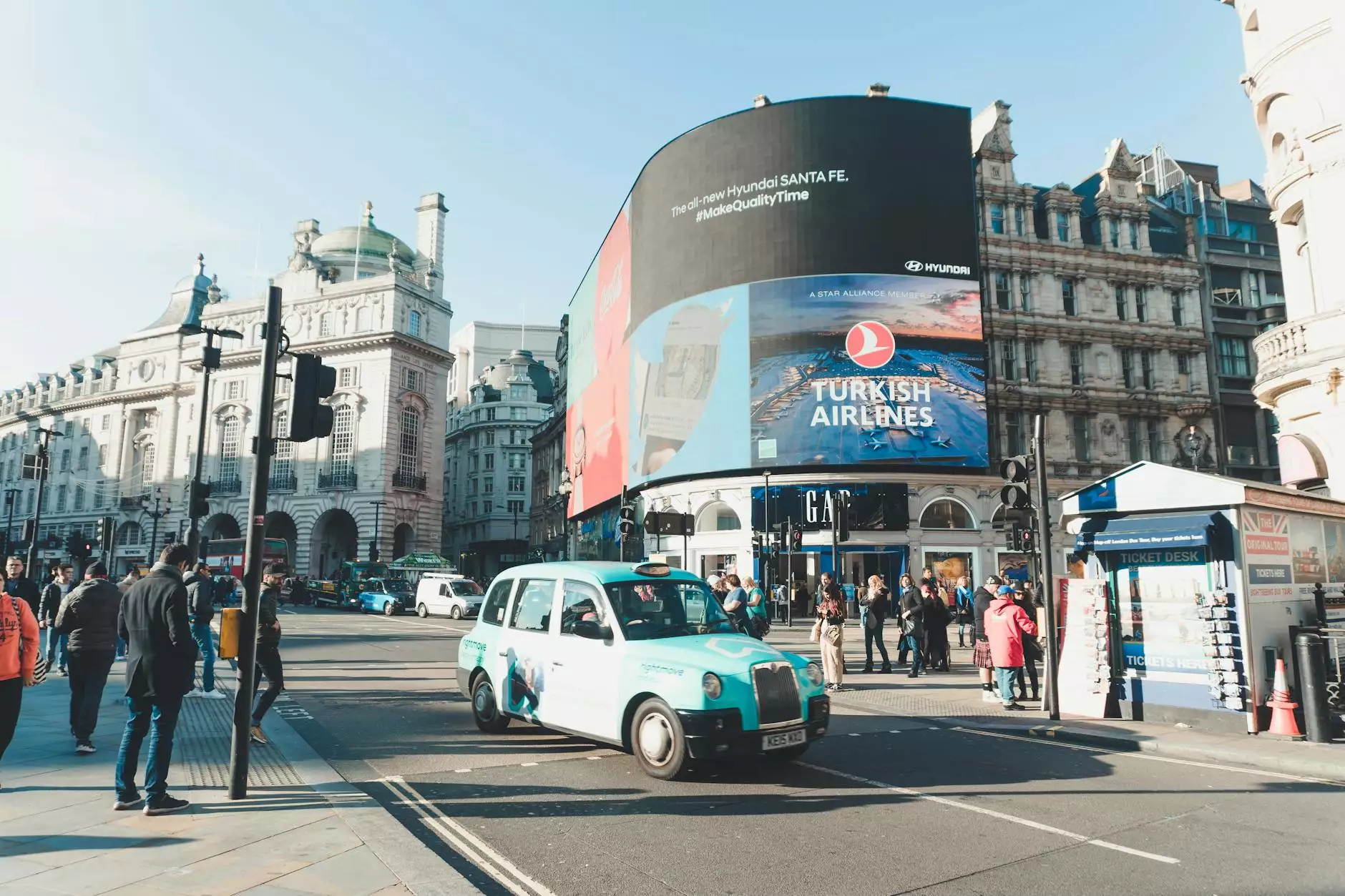The Evolution and Importance of Taxi Services

In the bustling world of transportation, the taxi industry holds a significant place, not only offering a means of mobility but also enhancing the overall travel experience. The term "taxi" itself has diverse linguistic roots, derived primarily from the French word "taximetre," which refers to the device measuring fare based on distance traveled. Understanding the evolution of this industry not only sheds light on our transportation systems but also highlights the broader implications for urban development and the economy.
The Historical Background of Taxi Services
The concept of public hire vehicles can be traced back centuries. Early forms of taxis date back to the early 17th century, where horse-drawn carriages were available for hire in France. These carriages evolved over the years, leading to the introduction of motorized taxis in the early 20th century. The first taxi service was established in New York City in 1907, with the introduction of gasoline-powered cabs. This marked the beginning of modern taxi services as we know them today.
The Birth of the Taximeter
The invention of the taximeter was a groundbreaking moment in the taxi industry. It allowed for accurate measurement of fare based on distance and time traveled. This revolutionary device ensured that passengers paid fair rates, fundamentally changing the public's perception of taxis, from a luxury service to an accessible form of transportation for everyone.
The Modern Taxi Industry
Today, taxi services are vital components of urban mobility, providing an array of transportation options. From traditional yellow cabs in cities like New York and London to ride-hailing services that operate through mobile applications, the taxi sector has diversified immensely. Let's delve into the various types of taxi services available today.
Types of Taxi Services
- Traditional Taxis: These are the cabs you can hail on the street, identifiable by their markings and taxi signs.
- Ride-Hailing Services: Companies like Uber and Lyft have transformed the taxi experience by allowing passengers to request rides through their smartphones.
- Luxury Taxi Services: For those seeking an upscale experience, luxury taxis offer high-end vehicles and premium service.
- Airport Taxis: Many airports have specialized taxi services designed to expedite passenger transportation to and from the airport.
- Shared Taxis: Some services allow passengers to share rides with others, reducing costs and environmental impact.
The Role of Taxis in Urban Mobility
As cities grow, so does the need for efficient and reliable transportation options. Taxis play a pivotal role in urban mobility for several reasons:
Accessibility
Taxis provide crucial transportation for individuals who may lack access to personal vehicles or public transit, including the elderly or disabled population. With features such as wheelchair-accessible vehicles, taxi services can cater to diverse mobility needs, ensuring that everyone can navigate urban environments.
Reduction of Traffic Congestion
By facilitating shared rides, taxis can significantly cut down the number of vehicles on the road. This is particularly important in densely populated cities where traffic congestion can lead to frustration and lost productivity. Implementing ride-sharing options through taxi services encourages carpooling, thereby alleviating some of the pressure on urban traffic systems.
Support for Economic Growth
The taxi industry generates significant employment opportunities, from drivers to managerial positions within taxi companies. Furthermore, the existence of reliable taxi services boosts local commerce, as residents and tourists can easily reach shops, restaurants, and events.
The Future of Taxi Services
As technology continues to evolve, so will the taxi industry. Innovations such as self-driving cars and artificial intelligence are set to redefine how we think about taxi services. Companies are already experimenting with autonomous vehicles, aiming to enhance safety and efficiency in transportation. Additionally, fleet management systems powered by AI are optimizing routes, improving response times, and reducing operational costs.
The Role of Sustainability
In an era where environmental concerns dominate global discussions, the taxi industry is also looking towards sustainability. Many taxi companies are transitioning to electric or hybrid vehicles, significantly decreasing carbon footprints. Furthermore, initiatives promoting shared rides not only reduce emissions but also encourage sustainable travel practices among passengers.
Benefits of Using Taxi Services
Utilizing taxi services offers numerous benefits that contribute to the overall well-being of urban environments:
- Convenience: Taxis are available 24/7, providing instant access to transport whenever needed.
- Safety: Professional drivers are trained and often vetted, ensuring safer travel experiences for passengers.
- Cost-Effectiveness: For short distances, taxis can often be more economical than maintaining a personal vehicle.
- Local Knowledge: Drivers often have extensive knowledge of local areas, providing invaluable assistance to travelers and tourists.
- Time Efficiency: Taxis can navigate through traffic effectively, often getting passengers to their destinations faster than public transport.
Conclusion
The taxi industry has undergone significant evolution since its inception and continues to adapt to the changing needs of commuters across the globe. With the introduction of innovative technologies and a focus on sustainability, the future of taxi services looks promising. Whether it’s the convenience of a ride-hailing app, the luxury of a private car, or the reliability of a traditional taxi, these services will remain an integral part of our urban landscapes. Demanding high-quality taxi services that cater to various needs is not just a trend; it is a necessary evolution for urban mobility.
As we embrace the future of transportation, let's appreciate how the humble taxi, a concept that has withstood the test of time, continues to shape our cities and enrich our lives. Whether you are in the heart of London, the streets of Paris, or at the airports, remember that your next trip can be made smoother and more enjoyable by opting for a taxi service that meets your unique needs.



